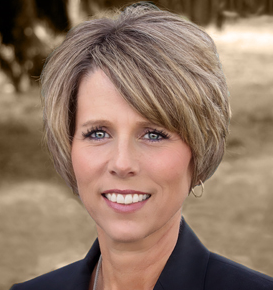Published on March 8th, 2021
By Megan Eales Monroe
On this International Women’s Day, we’re exploring and celebrating the unique experiences of women in real estate.
The latest episode of The Top Floor podcast spotlights three customers who have built, grown, and led successful property management companies. Our conversations touch upon their careers, successes, and challenges – such as guiding a team through a pandemic – and how perceptions and representation of women in leadership have evolved in the real estate industry.
Listen now:
Episode Transcript:
Sean: You’re listening to The Top Floor, a podcast featuring critical conversations around property management, community associations, and real estate investing. I’m your host, Sean Forster, the trend researcher at AppFolio. Every other week, The Top Floor we discuss change, innovation, and opportunities for the future. With help from thought leaders and change-makers, we’ll give you inside-access to our world at the height of industry disruption. Here’s Megan Eales Monroe.
Megan: Today on The Top Floor, we reached out to female leaders in real estate as part of International Women’s Day, a celebration of women’s achievement. Our conversations touch upon their careers, successes and challenges – such as guiding a team through a pandemic – and how perceptions and representation of women in leadership have evolved in the real estate industry.
Donna: It is a tough business, but it’s very rewarding and you can impact it in a meaningful way, personally. This is the one of the few career opportunities that you are awarded, basically, a small business owner day one.
Megan: Donna Block is the President of Lux Communities, a North Dakota-based firm that oversees more than two thousand investment properties in the Upper Midwest.
Donna: I worked for … one of the major players in the region, in the Midwest tri-state area … for over a decade. Then, I was awarded the opportunity to come over to Lux Communities. Lux Communities really was just born, probably two years before I got there.
Donna: It was really exciting for me because I was able to help build this business from the ground up. When I started, we had 13 employees, and now we have 42. We had just under a thousand units, and now we’re up to … 2,300 units with almost a million square foot of commercial as well.
Donna: So you can see this was a short amount of time that we went through this … rapid growth. One key area that I always kept thinking through as a leader to guide this growth and help us remain efficient … and contain our culture that we’re creating is: how do we get everybody on the same page? How do we make sure everybody knows what their purpose is in this organization? What are the goals of the organization?
Megan: Denise Dunkle is a CFO at The Management Group, a property management company in Washington state. Here she unpacks how she got started in the property management industry.
Denise: Well, I started my career with TMG and it was in the early nineties, actually mid 1990 to be exact. And it was really my first exposure to real estate and more specifically, the property management industry. I worked in the accounting department … we had six employees total in the organization at that time, half of which were accounting people. We were pretty small, but a mighty team. And while I was young and probably didn’t even know ultimately what I wanted to do when I grew up, I loved the business and was drawn to the blend of client and customer support and interaction, as well as the … analytical, financial side of the business.
Denise: The first thing I thought was really, it was a whirlwind. Thinking back, I really didn’t have lofty goals, but I wanted to be successful. The leadership team and the other employees were passionate about the industry and that was just really infectious. I’m often asked, what’s kept me at TMG as long as I’ve been here. And I always answer the same way. I love what I do … and the business model really fosters that.
Denise: I didn’t know what I didn’t know and basically grew up here at TMG. And as the company grew, I knew that I couldn’t just rely on those that were here before me at the organization, I needed to look outside of the company. I had to find resources and mentors in the industry, as well as the community, as a whole. And I’ve really just met a bunch of great people along the way to help … mentor and guide me. I would say the other thing that was a challenge is really technology. Back in the day, everything was manual. Although we had computers and email was even relatively new at that time, learning to adapt and use technology to help us work smarter and to provide service to the client that made it easy to do business with us.
Gozen: My name is Gozen Hartman.
Megan: Gozen is the co-founder and COO of Fair Lawn Real Estate, which manages both multi-family and commercial properties in Illinois. Since founding the company in 2015, they’ve grown from three-hundred units to just under four thousand.
Gozen: Going back I actually studied transportation engineering in college and grad school and after getting my masters, I went into strategy consulting, and I was actually in strategy consulting and specifically traveling logistics for over a decade. My husband had been in real estate for a number of years and we had always talked about starting our own company founded around some core values that we really believed in. We actually had some assets that were being managed by a third party, and we had an opportunity to take on management of those ourselves. Along with that, we took on a few third-party contracts that we sort of accidentally fell into third-party management and that was at maybe 280 units or something like that and again, that was in 2015 and then within five and a half years, we are at just under 4,000. So we jumped in.
Learning a new industry has been really thrilling to me. I still think of myself as new to the industry … but I’ve enjoyed bringing an outsider’s perspective to everything that we do. It’s interesting my background was in consulting and in consulting the most important asset that we had as a company was our talent, our people and in real estate, it’s interesting that it’s actually no different. So despite all of these we do have all these physical assets that we own and we manage. I have found that our people are definitely our most important asset.
Megan: Of course, no discussion of business would be complete without touching upon the many challenges stemming from the recent pandemic. Here’s Donna.
Donna: The pandemic really hit my region, the Midwest, right around March. The first 30 days was staying above water and what do we need to do right now today?
It was very humbling and it was very tiring. Working from home takes tolls on you when you’re not used to that as well. Then, early April, when I realized this is here to stay, this isn’t going to go away in a week, in a month, in a year, as we speak today. What do I need to do today to plan for three months from now, six months from now, a year from now, knowing that this was going to stay. One major change I put into effect … was a weekly COVID update meeting.
For about three months, every Friday morning, everybody jumped on a virtual call. I went through a slide deck and we just talked about what’s changed with COVID. What are we doing? What’s our internal protocols? How have they been adjusted? What’s the state of the business right now? It was a communication strategy to be more proactive on getting our stance in front of everybody at one point in time so everybody knew where we were as an organization, provide some comfort and uncertainty of what was going on within our industry and the pandemic as a whole.
That was a short-term proactive approach that we used. Then, once we got through those three months of those weekly meetings, we changed the cadence to monthly, and then eventually was able to streamline it more to where the regional managers were having those meetings.
That’s when I was able to have some capacity to start thinking about … future proactive strategies. What are we going to focus on for 2021? … Where do we want to be in five years from now?
Denise: Although our business operations have changed quite a bit, and many of the staff still continue to work remotely in some capacity, I’ve continued to work from the office. I feel more effective keeping with my routine and having my stuff around me, being really available to the rest of the team. I guess I’m kind of old school in that way. I collaborate better in person and like having real face time.
Denise: We’ve never been closed. However, in-person has been either by appointment only, or virtual. And we are continuing to do that, even though things have loosened up. I think in part because our clients and customers are getting kind of used to doing it that way and they don’t mind it. If they can get everything they need done and from us without having to make a trip to our office, then that’s a perk. Although we do have some clients that are kind of old school like me, and it’s like, “Can’t I just come in and do you have a place where we can social distance?” And we try to accommodate that as best we can.
Megan: Even outside of a pandemic, automation is an enormous asset to any property management company. During a pandemic, it’s an essential resource. Here, Denise talks about adding automation to her company in late 2018.
Denise: There has to be a point in time as an organization, as we grew that we can’t keep doing what we used to do and expect different results because the market is changing, what clients are looking for are changing. And so finding ways to really make it easier to do business with us became a priority. And so we were probably 18 months into that before COVID even happened. And so a lot of our processes and resources and tools that we used had already been updated, so that working remote became fairly easy.
Megan: Here’s Gozen.
Gozen: Literally everything changed overnight for us, that’s very much how it felt. We had to pivot in everything that we did from accounting to maintenance, to our frontline operations at our properties and we had to make a lot of decisions very quickly. I think that one thing that made it easier for us is that we’ve always been a tech forward company. So we had a lot of great technology in place, including AppFolio that enabled us to really do a lot of things remotely and it really forced me to take a step back and think about what needs to be done?
What do we need? Let’s not have any waste here, what continues to need to be done and where does that activity need to take place? Does it have to take place at the property, can it take place somewhere else? So we were able to make a lot of changes very quickly. It’s one of those things where you look back and you don’t really know how you got through it. For me personally, I would say that I was faced as a leader and as chief operating officer of the organization, you can imagine that it was really operationally that we needed to change in so many different ways.
So I was suddenly faced with more work than I had ever been faced with before, less time to do it, much less time, let’s be honest and so that was just really challenging and I needed to find a way to be able to confidently make decisions faster than I ever had before. I really had to embrace the mindset that making a decision that was probably the right one and maybe not, but making it quickly was more valuable than spending time deliberating. So I’ve tried to keep that with me today, of course we aren’t through the pandemic, but that’s something that I think about every single day and when I’m faced with a decision, do I really need to use this much time to think about it.
So remarkably last year, even with the craziness that that happened, we added about 8 to 900 units to our portfolios. So we did grow pretty significantly.
It’s very difficult to operate in this climate and so I think that we can really set ourselves apart. So from a growth perspective, we’ll see what happens, but I’m also taking this opportunity this year to really focus on process. So we’re making a lot of investments in just evaluating if we have the best process and every part of our organization and we’re actually bringing in some external facilitators to help us do that because it would be not that we’re not smart enough to do it ourselves, but I think that it would be something that would go to the back burner. But really focusing on process and making sure that we have alignment, training and the right execution across the organization and I think that if we can get that, that will really set us up for the next wave of growth.
Donna: I am so excited for 2021. 2020 was a pause year. We did a lot of things, but we weren’t able to do all the things that we had planned because the pandemic took the front seat.
Donna: We were forced to create many efficiencies that now are great for our business, and that we’re able to work on other areas of the business because we’re so efficient in some of the old ways of doing things, such as self shows, and virtual tours, and electronic leasing, and all the things that technology provides.
Donna: Technology used to be a nicety, and now it’s a necessity. For any business to thrive, technology is necessary. One thing that we did in 2020 is really dig into all the technology that is available to us.
Denise: Actually business looks great. We’re still growing, bringing on new accounts, adding staff. Our diversified business model is pretty recession proof, and while certain aspects of our business have been affected by the pandemic, overall, we’re trending up and taking advantage of new and exciting opportunities. We’ve actually added about 15% to our head count since last summer, most of which are all brand new positions that we’ve either added additional business offerings, we’ve expanded the team. And we just had an HR meeting this morning regarding recruitment and kind of some workforce planning and our recruiters like, “So do we see this slowing down?” It’s like, “No, we don’t.”
Megan: In the midst of constant growth and change, finding balance becomes more important than ever. For this reason, one of the most important aspects of leadership these women shared with us was the need to delegate, prioritize and focus on the non-negotiables, in life and their careers.
Gozen: I think a common misconception is that you can’t have it all. And I think that specifically that you can’t have a substantial career, I think people, when they say that they’re meaning that you can’t have a substantial career at the same time as having a family. I believe and what I like to tell everybody and especially women is that I think that you can have it all, it depends on what your definition of all is, but you can have it all. You just can’t do it all because we only have a certain amount of time and so whether it be in your home life or your business life, I would really advise to take a step back and think about all the activities that you perform and if there’s something that isn’t value add, then just eliminate it.
And then with what’s left, think about what do you absolutely have to do versus what can you delegate. Of course we all get stuck doing things that we may not think that we need to be doing or should be doing but I think that just like keeping in mind that we do have control over our lives and that we can strive to really have everything that will drive for happiness is really important.
Megan: And yet, perceptions of women in leadership continue to evolve. Along with that, the positive impact of fostering inclusivity in the workplace has become clearer than ever.
Donna: Yeah, I’ve seen it definitely take a shift. When I first started, it was heavily female on the entry-level positions. At the site offices, leasing consultants. At the corporate level, definitely majority male.
Throughout the last decade and a half, though, I’ve seen this switch and really level out. It’s great to see not only that organizations are promoting women into leadership roles and they are at that executive level, corporate level upper management, but also that males are coming into the industry at that entry level, where historically, it’s been majority female at the entry level. I’ve really seen the shift to just … It’s evening out on all levels of the organization, which only creates better collaboration and more inclusiveness.
Denise: TMG has always had women in key leadership roles. We’ve always been able to accomplish everything we set out to do. In my mind, leadership is leadership and a good leader, regardless of gender is what a thriving, successful company needs.
I don’t think that this is exclusive to the real estate industry necessarily, it’s just good business practices. But looking for the value of all team members and encourage and expect that from your whole team. And our goal is to manage to the strengths of our team members and appreciate the differences that each member brings to the whole. Making sure that we recognize that diversity creates a dynamic team that can create, innovate and deliver much bigger and in an exciting way than when we’re team members are all the same or all having similar background, interest or strength.
So each team is created, this should be part of the methodology. As we bring on a team member, we should be considering that. I think that oftentimes, our natural response or reaction when we’re trying to fill a role internally, that when we go through the recruitment process, we’re thinking, we need to find someone like us or find someone like other people in the team, but that’s not always the case. Oftentimes having more diversity and a wider or a broader experience base that can come to the table, can create results in the end, as well as just create a better dynamic, more holistic team.
Gozen: So when I think about inclusion and I think that people can define it in different ways, I think about everyone receiving the rewards and the recognition that they deserve. This has been really difficult, I think over the past year for a lot of companies, because it does take a lot of proactive thinking versus reactive and I think that there’ve been a lot of reactive activities obviously to the pandemic. So as a leader, it has been a lot harder to think about things like rewards and recognition, although more important than ever with how hard everybody is working. So what I would encourage leaders to ask themselves is what are your most important assets and what are you doing to proactively invest in these assets? For us the most important asset is our people and so it’s not just about finding the best talent and bringing them into the organization, it’s really at that point is when the real work begins. So there is no better investment of your time and money than in your people, it’s just about the best investment that you can make.
Donna: The number one question that leadership should be asking themselves is what is your communication strategy? If you don’t have a strategy around how you communicate as a leader, you’re going to be left open to a lot of liability for interpretation. What can you do to really think through on what your team or organization knows as the values of that organization, as the purpose of not only the organization, but them in that role, and also what are the goals? What are the long-term goals and vision?
My advice is, treat it like it is your own business and learn every aspect of a small business. Whether it’s sales, customer service, marketing, the financials. Really create a well-rounded small business and your hard work will show impacts quickly, and you can see the property performance.
Gozen: Yeah, so it’s really not advice specific to women, for me it’s really to everyone, I think that you need to work hard and nothing good comes without hard work. That’s something that’s really important and to not be afraid to get out of your comfort zone and to have a positive mindset. I think those are really important, I think they span any industry. Within real estate in particular, I have learned that patience is very important, particularly with turnaround projects, you cannot have widespread change overnight. Last, but certainly not least remember to have fun because that’s the most important part.
Megan: On this International Women’s Day, we recognize all women who are leaders in the real estate industry and beyond. Many thanks to our guests, Donna Block, Denise Dunkle and Gozen Hartman for offering their unique perspectives to this episode. Our show and our audience are more informed because of your contributions.
Sean: Thanks for listening to The Top Floor. Join us here every other week for a new episode. For more information about today’s guests, visit us online at appfolio.com/blog. For more property management insights, follow AppFolio on LinkedIn, Twitter, and Facebook. Don’t forget to subscribe to The Top Floor on Spotify, Apple Podcasts, Stitcher, or wherever you listen.
We’ll see you next time.











Comments by Megan Eales Monroe
Consistency Is Key: 5 Ways to Help Property Management Teams Work More Effectively and Efficiently
Hi there Ryan! We definitely have solutions that make sense ...
How Will Rent Control Impact Property Management Companies in 2020?
Hi Frank - the Consumer Price Index (CPI) is used as a ...
What is AI, and How is it Transforming the Real Estate Industry?
Hi there, Kim! The price depends on your business' ...
There’s a Better Way to Get Work Done: How to Maximize Team Performance through Experience
Hi Amanda, We'd be happy to provide you with more info! ...